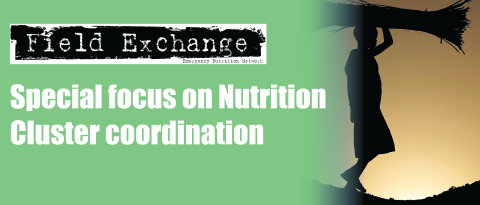Guidance on accountability to affected populations
The Global Nutrition Cluster (GNC) is committed to integrating its commitments on accountability to affected populations (AAP) in the Nutrition in Emergency (NiE) response. As a part of the GNC 2014-2016 strategy, an initiative was taken to operationalise the Inter-Agency Standing Committee (IASC) five Commitments on Accountability to Affected People (CAAP)1 (leadership/governance; transparency; feedback and complaints; participation; design, monitoring and evaluation) endorsed in December 2011.
The IASC Principals (heads of all IASC member agencies or their representatives) agreed “to incorporate the CAAP into policies and operational guidelines of their organisations and to promote these with operational partners, within the Humanitarian Country Team (HCT) and amongst cluster members” with a draft Operational Framework on AAP and associated tools that were designed and piloted in 2012. Despite global efforts in the ensuing years, it has been found that, even though there are “increasing numbers of non-governmental organisations (NGOs) demonstrating considerable success in building an organisational ‘culture of accountability’ and the commitments endorsed by the IASC Principals in 2011, AAP is still not sufficiently prioritised at the senior, inter-agency, or cluster levels”. The IASC’s key objective for 2014-2016 was to “create a system-wide culture of accountability”; thus the development of the AAP framework and associated tools constitute concrete action on behalf of the GNC and its partners to contribute to the achievement of this aim.
The GNC AAP framework and tools are founded on the IASC CAAP and the Core Humanitarian Standard (CHS), currently the two key sets of guiding commitments on quality programming and accountability in the humanitarian sector. The CHS was launched in December 2014, superseding the Humanitarian Accountability Project (HAP) 2010 Standard in Quality and Accountability and the People In Aid Code. Depending on their governing bodies, global nutrition actors may be accountable for reporting against the IASC CAAP, the CHS, and/or against their agency’s accountability framework, which may for some time still follow the structure of the HAP 2010 Standard. The GNC operational framework on accountability explores how it may be possible to work with these core commitments simultaneously to create common ground among actors, regardless of their agencies’ obligations. It does not generate new commitments but attempts to provide a shared platform that highlights the nutrition context and the priorities identified by nutrition actors, allowing all agencies to meet their particular commitments while working together.
The GNC guidance on AAP is available at links here and here.
Endnotes
1IASC website: www.humanitarianinfo.org/iasc/pageloader.aspx?page=content-subsidi-common-default


